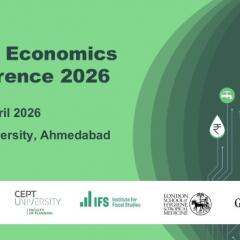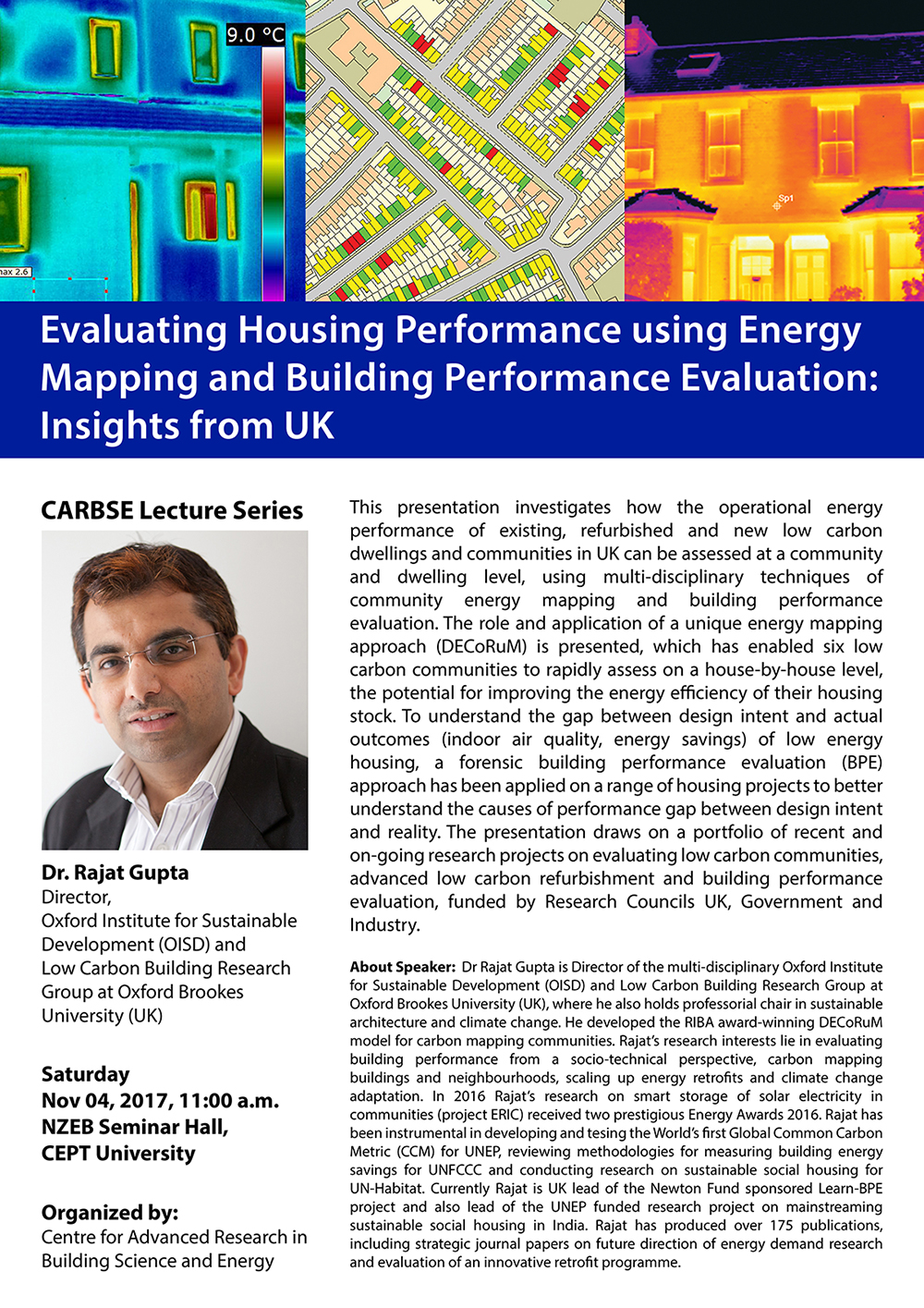
CARBSE Lecture Series: Dr. Rajat Gupta

Event
Sat, November 04, 2017 - Thu, January 01, 1970
11:00 am
NZEB Seminar Hall, CEPT University
About the lecture
This presentation investigates how the operational energy performance of existing, refurbished and new low carbon dwellings and communities in UK can be assessed at a community and dwelling level, using multi-disciplinary techniques of community energy mapping and building performance evaluation. The role and application of a unique energy mapping approach (DECoRuM) is presented, which has enabled six low carbon communities to rapidly assess on a house-by-house level, the potential for improving the energy efficiency of their housing stock. To understand the gap between design intent and actual outcomes (indoor air quality, energy savings) of low energy housing, a forensic building performance evaluation (BPE) approach has been applied on a range of housing projects to better understand the causes of performance gap between design intent and reality. The presentation draws on a portfolio of recent and on-going research projects on evaluating low carbon communities, advanced low carbon refurbishment and building performance evaluation, funded by Research Councils UK, Government and Industry.
Speaker's Profile
Dr Rajat Gupta is Director of the multi-disciplinary Oxford Institute for Sustainable Development (OISD) and Low Carbon Building Research Group at Oxford Brookes University (UK), where he also holds professorial chair in sustainable architecture and climate change. He developed the RIBA award-winning DECoRuM model for carbon mapping communities. Rajat’s research interests lie in evaluating building performance from a socio-technical perspective, carbon mapping buildings and neighbourhoods, scaling up energy retrofits and climate change adaptation. As Principal and Co-Investigator, he has won nearly £10 million in research grants. In 2016 Rajat’s research on smart storage of solar electricity in communities (project ERIC) received two prestigious Energy Awards 2016. Rajat has been instrumental in developing and tesing the World’s first Global Common Carbon Metric (CCM) for UNEP, reviewing methodologies for measuring building energy savings for UNFCCC and conducting research on sustainable social housing for UN-Habitat. Currently Rajat is UK lead of the Newton Fund sponsored Learn-BPE project and also lead of the UNEP funded research project on mainstreaming sustainable social housing in India. Rajat has produced over 175 publications, including strategic journal papers on future direction of energy demand research and evaluation of an innovative retrofit programme.
